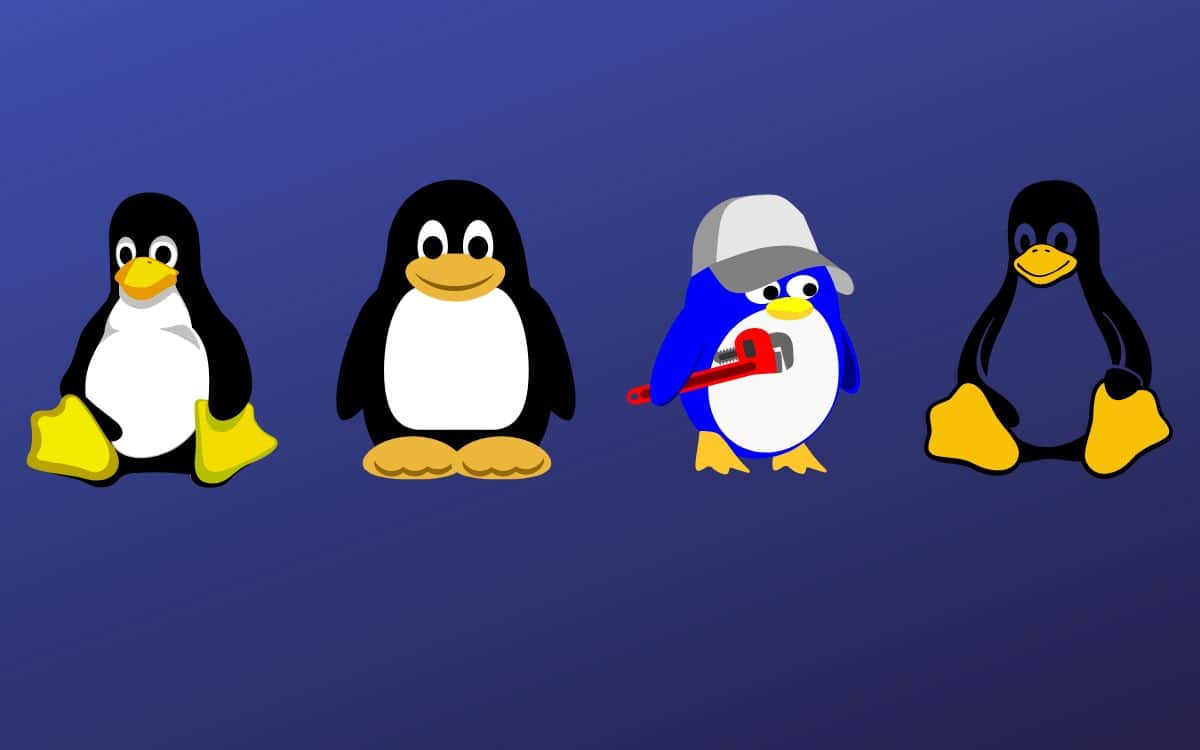
The free software community is very varied, that is why so there are several types of Linux users. In this article we review some of the most prominent. And you, what category do you belong to?
I must confess, after reading the mozilla studio I came to the conclusion that anyone can write an investigation. And, given that I always wanted a Nobel but literature is not given to short-sighted Argentines (ask Borges) and that for others you have to study too much, only Economics remains.
Types of Linux users
In the beginning there was only one type of Linux user, the computer geek who enjoyed spending hours and hours trying to optimize code for a small improvement who only appreciate and others like him. However, as the creation of Linus Torvalds was improving and becoming accessible to more uses, other people with other interests and needs were added. Let's see a possible classification
the orthodox
He has used Linux since Torvalds made the project public and deeply regrets that it has ceased to be a toy for nerds. He is convinced that everything was spoiled with the arrival of the graphical interface.
the parishioner
More than a user of an operating system, he is a devotee of a religion. The free software.
It considers any inclusion of proprietary software heresy regardless of the lack of alternatives. In addition, it refuses to receive files in proprietary formats
It is easy to recognize. It is the one that you are going to write in the comment form that the correct way to say it is GNU/Linux.
The heretic
Category created with the author of this article in mind.
The heretic likes the principles of free software but does not hesitate to install and recommend proprietary drivers and programs if it thinks they are better.
If I gave him the budget, chances are he'd buy a Mac and an iPhone.
This one is easy to recognize. He is the one who writes articles about the types of Linux users in Office for Android and uploads it to the blog with the Edge browser.
the owner of the truth
He is a fan of a distribution and considers it superior to the rest, even if there are no technical arguments that support their position.
Her love is such that she does not hesitate to recommend her in any available space. Whether it's a request for a recommendation, a question about a problem with another distribution, or the feedback form for a post about breeding platypuses.
To compensate for his love for one distribution, he often expresses an equally deep and unjustified hatred for another, which he does not hesitate to attack at the slightest opportunity.
the spoiled child
Perhaps the most hated on the list.
In case of any doubt or difficulty, an immediate response is required. without understanding the difference between the technical support of the services you pay for and a project developed by volunteers.
If you don't respond immediately, he threatens to go back to Windows.
When he is sent to search on Google or in the documentation, he claims not to have found the solution, even though it is something that has been answered millions of times.
These people make us understand our mothers when they told us that “I go and find it and. When I do, I'll slap you."
The repentant
Once a Linux user, but was seduced by the delights of proprietary software (Usually Apple's). However, since he did not unsubscribe from the blogs, photos or groups that he frequented, he intervenes from time to time to convince others to follow in his footsteps.
serious ending
This post is not intended to offend anyone.
A major obstacle to the spread of free software is the impossibility of empathizing with the other. Many times another project or someone within the project is more viciously combated with a different technical criterion than the harmful practices of proprietary software.
When I started in Linux, users with little technical skills were called "lusers" without understanding that not everyone has the same knowledge.
For free software to advance, it needs a community based on respect for the needs and interests of others.
I'm in the heretic section, except that I wouldn't buy a Mac or an iPhone even remotely, I prefer Clevo and Xiaomi.
Nice but fundamentally correct classification, free software is not so free if you don't keep an open mind, if you are not able to use it with joy, if you are not able to recognize when an alternative, free or not, is better than another.
"The Heretic" would correspond to me, with the exception that I would not buy a Mac or an iPhone. I have no problem using proprietary software if I think it's better, for example Google Chrome.
Missing is the category of those who have not studied the history of free software, do not know who Richard M. Stallman is, confuse Linux with GNU/Linux and, on top of that, joke about it.
I AM BETWEEN A HERETIC AND THE OWNER OF THE TRUTH, I MARRIED MINT AND EVERY TIME I CAN I GIVE IT TO A FRIEND, THE OTHER GRAPHIC ENVIRONMENTS GIVE ME HUGE, BUT I DON'T FIGHT WITH ANYBODY OVER THEIR TASTES AND SEPSUAL PREFERENCES HAHAHA I THINK IT WOULD BE BETTER IF THERE WOULD BE MORE CATEGORIES
SALU2
I think I'm guilty of heresy just like @Jose, although I live very well with a 150 euro phone, I don't dream of Iphones, Macs or the like.
I don't fit into any of the categories. I am one of those who says GNU/Linux but I consider that the important thing has always been that the user knows the available options and has the possibility to choose.